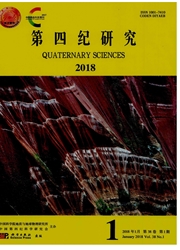

 中文摘要:
中文摘要:
青藏高原作为世界海拔最高的区域,是全球气候变化的敏感区之一.定量估算这一区域的净生态系统碳交换量(NEE)有利于理解陆地生态系统碳平衡对未来气候变化的响应.本文构建了一个模拟该地区NEE动态变化的净碳收支模型(NCBM).该模型由来源于MODIS影像的增强型植被指数(EVI)、陆地表面水分指数(LSWI)以及来源于地面观测的空气温度和短波辐射共同驱动,并利用青藏高原地区的3种植被类型(包括高寒灌丛、高寒湿地和高寒草甸)的碳通量长期观测数据对模型进行了校准和验证.结果表明,在模型校准站点年,NCBM模型可以模拟NEE观测值81%的变化,均方根误差(RMSE)为0.03mol C/m2/d,模型效率(EF)为0.81.在模型验证站点年,NCBM模型可以预测NEE观测值84%的变化,RMSE为0.03mol C/m2/d,EF为0.81.在大多数情况下,NCBM模型可以清晰地模拟各植被类型的NEE季节和年际变化.此外,NCBM模型因为结构简单,模型驱动变量易于获取等优势,具有在区域尺度上模拟NEE时空变化的潜力.但是该模型还需要进一步的改进和发展,特别需要提高对植被非常稀疏地区NEE变化的模拟能力.
 英文摘要:
英文摘要:
The Tibetan Plateau is the highest plateau in the world,and is one of the most sensitive areas to the global climate change.Accurate estimation of the spatio-temporal variation in net ecosystem exchange (NEE) for this area is important for studying the reponse of terrestrial ecosystems to future climate change.In this paper,we develop a Net Carbon Budget Model (NCBM) to estimate the dynamic change of NEE in the Tibetan Plateau.The NCBM is only driven by the Enhanced Vegetation Index (EVI) and the Land Surface Water Index (LSWI) from MODIS image,and air temperature and shortwave radiation from ground observations.The long-term eddy CO2 flux data of three vegetation types (including alpine shrubland,alpine marsh and alpine meadow-steppe) in the Tibetan Plateau from ChinaFLUX were chosen for model calibration and validation.At model calibration site-years,the NCBM could estimate about 81% of the variation in the flux-observed NEE,with the root mean square error (RMSE) of 0.03mol C/m2/d and the model efficiency (EF) of 0.81.At model validation site-years,the NCBM could predict about 84% of the variation in the flux-observed NEE,with the RMSE of O.03mol C/m2/d and EF of 0.81.In most cases,the seasonal and interannual variation of the estimated NEE matched well with those of the observed NEE whether at model calibration site-years or at model validation site-years.Above results indicated that the NCBM has a good performance in NEE estimation,and also has a potential to estimate spatial NEE because of its easily obtained variables.However,the performance of the NCBM under the condition of very sparse vegetations needs to be imporved in the further study.
 同期刊论文项目
同期刊论文项目
 同项目期刊论文
同项目期刊论文
 期刊信息
期刊信息
